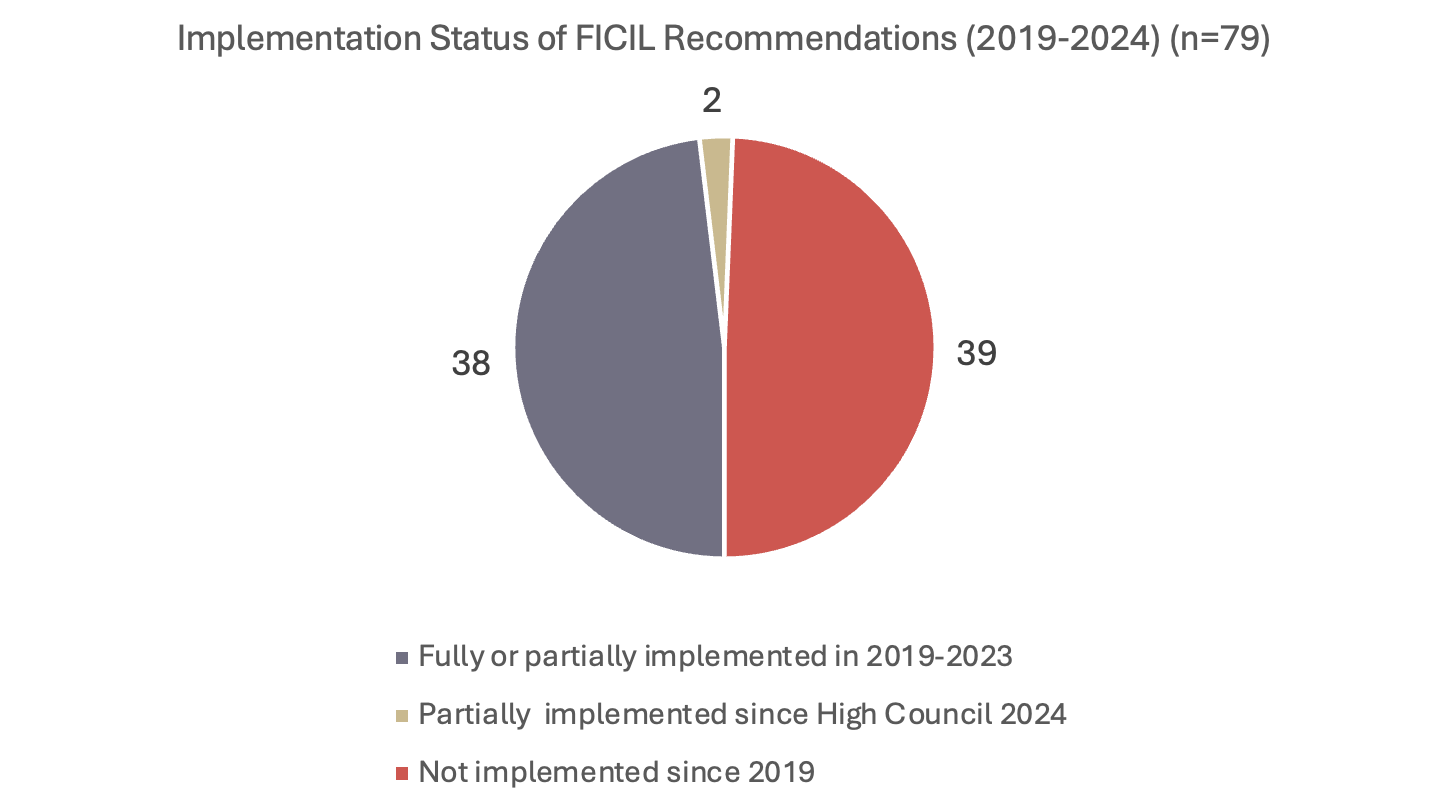FICIL’s Labour and Requalification Work Group has consistently focused on the most critical and system challenge in Latvia, namely – quality and availability of human capital. The Group has been providing recommendations to strengthen and increase availability of Latvia’s human capital, to boost the quality of education and training, and to stimulate labour market flexibility through labour regulation.
Since 2019, the group has put forward 79 recommendations to support above-listed goals. To date, 51 % of these recommendations — 40 in total — have been either fully or partially implemented. Since the previous High Council, only 2 recommendations have shown some progress in implementation. Specifically, partial progress has been observed in advancing implementation of the Human Capital Development Strategy 2024–2027, in designating the Human Capital Development Council as the responsible coordinating body, and in initiating amendments to the Labour Law, aimed at improving labour market flexibility and addressing workforce availability challenges.
In view of the foreign investors, such limited progress is very worrying and insufficient, given importance of human capital, significant challenges in this area, and a massive impact on the economy. It is clear that during the last year the Latvian government had to focus on addressing challenges in the security and defence sector. However, human capital challenges should not be sidelined, especially as reaching progress in this area takes years and significant investments. As pointed out during the FICIL Sentiment Index research – if there are no people, there will be no economy. In view of the current political climate, if there are no people, there will be no one to defend.
Claudio Rivera: “The limited progress in human capital development shows that it remains a low strategic priority, despite the government’s declared ambitions for national growth.This is reflected in the limited funding allocated to education and training, a lack of strategy and clear governance for the human capital development. For years, the foreign investors have been pointing to deep and systemic challenges in this area and received a confirmation from the government that it is a national priority. However, such confirmation has not yet translated into real action, which continues to undermine trust of investors and raise concerns about future of Latvia’s economy. Latvia has many talented people and a great potential, but this potential can be unlocked only when the Latvian government will make a true commitment to address the human capital challenges”.
Irina Rozenšteina: “A flexible Labour Act and employment regulatory framework is essential for fostering entrepreneurship and enabling constructing dialogue between employers and employees. Foreign investors have consistently raised concerns that the current legal framework is excessively rigid, outdated, and imposes disproportionate financial and administrative burdens on employers. Although the government has initiated proposals to amend the Labour Act, the views of trade unions appear to be given significantly greater weight than those of employers and foreign investors. This imbalance undermines the principle of fair representation and risks distorting the legislative process. Labour legislation must strike a fair and sustainable balance—safeguarding employee rights while also supporting employers in maintaining viable, productive enterprises.”



